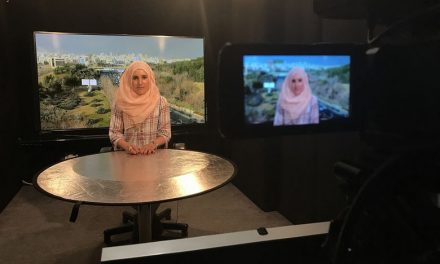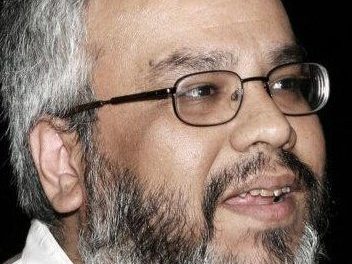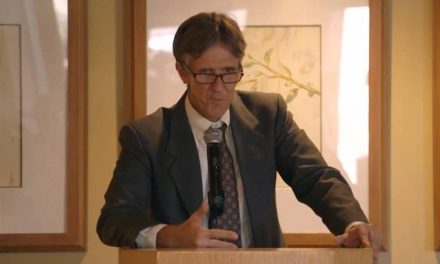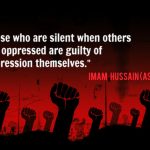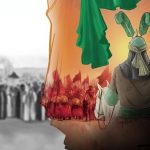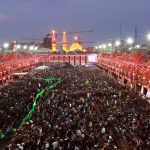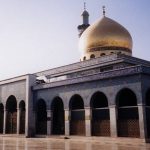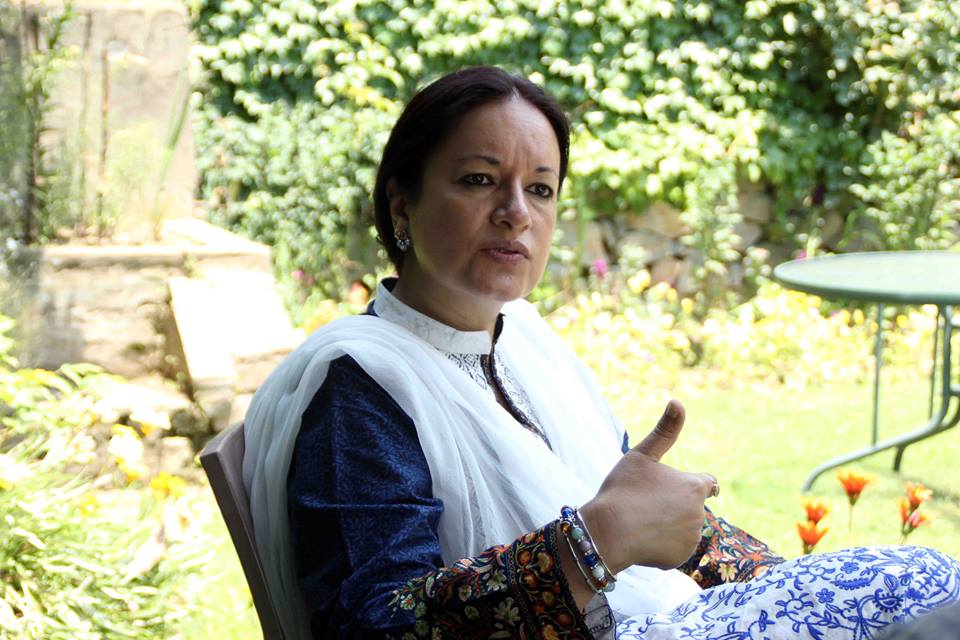
In an exclusive interview with Shia Followers, Dr. Nyla Ali Khan, the author of Islam, Women, and Violence in Kashmir: Between Indian and Pakistan, said: “Educated Muslim women should fully participate in professional and political life in Kashmir, and not make a virtue of helplessness and destitution.”
“It is imperative that women actors assert the rights guaranteed to them by Islam and in collaboration with other civil society actors, focus on the rebuilding of a greatly polarized and fragmented social fabric to ensure the redress of inadequate political participation, insistence on accountability for human rights violations through transitional justice mechanisms, reconstruction of the infrastructure and productive capacity of Kashmir, resumption of access to basic social services,” she said.
Here’s the full transcript of the interview:
Thousands of people have died as a result of the conflict in Jammu and Kashmir. How has the conditions of the Muslim majority area changed in recent years? What role can the Muslim world play to resolve the conflict in Jammu and Kashmir?
Nyla Ali Khan: We inhabit a world that has been sinking further into the morass of lack of political accountability and cultural repression after the gut-wrenching events of September 11, 2001. We have witnessed the fizzling out of the fragile Peace Pact in Palestine in 2003. We have witnessed the reduction of Afghanistan in Southwest Asia to a battlefield on which the former Soviet Union and its Cold War adversary, the United States, fought a proxy war. We have witnessed the legitimization of the Taliban vigilante during that period, and then the brutal regime of the Taliban.
We have witnessed the invasion of Afghanistan, the rationale for which was the ‘liberation’ and ‘emancipation’ of the Afghan women. We have witnessed the invasion of Iraq, which enabled the ousting and execution of a dictator, who was once an American ally. We have witnessed the disbanding of the Iraqi army, growing sectarianism and political dysfunction in Iraq post-Saddam. We have witnessed instances of reckless regime change in Western Asia, Southwest Asia and the Middle East, which were brought about without careful thought being given to the repercussions and governance of those topographically and politically circuitous terrains. We have witnessed the installation of purportedly de jure regimes in Afghanistan and Iraq, and the unspeakable degradations the populaces of those countries were subjected to. We have witnessed the declaration of a caliphate across northern and western Iraq as well as eastern Syria by the ISIS.
We have witnessed the condemnable distortions of Islam by that militant organization and the egregious atrocities inflicted on not just minorities, but on their co-religionists as well by ISIS. We have witnessed the regressive cultural politics of the Taliban in Afghanistan. We have witnessed the Hindutva movement in India, with its privileging the idea of an ethnically pure Hindu nation. These events were caused by political impetuousness and thoughtlessness, which cause such irreparable damage that their seismic tremors continue to destabilize other regions of the world. In such a complex world, multiple histories, cultures, and subjectivities cannot be pigeonholed, stereotyped or clubbed together.
The Muslim world can seek redress for previous violations of human rights for all groups within the state of Jammu and Kashmir. In addition, they can emphasize the need to be open to diplomacy and peaceful negotiations to further the India-Pakistan peace process. The aims of that process should be the withdrawal of excessive forces from both sides of the Line of Control dividing Kashmir as well as decommissioning militants, the rehabilitation of detained prisoners, and repair of the frayed ethnic fabric in all parts of civil society. The Muslim world can encourage the governments of India and Pakistan to make a smooth transition into the globalized world by shelving the politics of duplicity and recognizing the autonomous status of Jammu and Kashmir.
The prevalent majoritarian politics and uncertainty in India, helps in the institutionalization of unaccountability, and opportunists make hay while the unpredictability in Kashmir remains unresolved. Obviously, an important challenge then and now is the restoration of a democratic process in J & K, the validation of a secularism that recognizes diverse religious identities and allows for the accommodation of those identities within a secularist framework, creating new openings for people, including the young, to discuss public issues and become active participants. The aims of that process should be repair of the frayed regional and political fabric in all parts of the State. Mainstream regional parties and separatists require a clear roadmap that enables us to preserve our identity, influence on legislative and decision-making process, not simply increasing our nuisance value.
Among the most affected are the Kashmiri Muslim women. What’s your take on the targeting of women?
Nyla Ali Khan: Why is gender violence such a consistent feature of the insurgency and counterinsurgency that have wrenched apart the Indian subcontinent, particularly Jammu and Kashmir, for decades? In effect, the native woman is constructed as a trough within which male aspirations are nurtured, and the most barbaric acts are justified as means to restore the lost dignity of women.
The story of the partition of India in 1947 into two separate nation-states, India and Pakistan, is replete with instances of women resorting to mass suicide to preserve the “honor” of the community. If a woman’s body belongs not to herself but to her community, then the violation of that body purportedly signifies an attack upon the honor (izzat) of the whole community.
The unpleasant reality in which J & K lives – one of Indian and Pakistani dominance – is marked by the overwhelming presence of paramilitary troops, barbed wire and invasive searches; dispossessed youths trained in Pakistani training camps to unleash a reign of misguided terror; custodial killings in detention centers, and mothers whose faces tell tales of woe waiting outside those gloomy centers to catch a glimpse of their unfortunate sons (an exercise in futility); and burqa-clad women living in fear of the wrath of fundamentalist groups as well as paramilitary forces bent on undercutting their self-respect. The military has carte blanche under the Jammu and Kashmir Public Safety Act of 1978 and the Terrorist and Disruptive Activities [Prevention] Act of 1987 (for a discussion of the draconian laws in J & K, see Puri 1995; Widmalm 2002; Wirsing 2002). The traditional communal harmony in Kashmir has been eroded by Pakistan’s sponsorship of terrorism in the state, India’s repression of every demand for local autonomy and shelving of self-determination for the people of the state, and the eruption of ethno-religious fervor as a result of the central government disregarding democratic institutions in J & K. The anarchy that pervades the cultural and political fabric of J & K has been stoked by government-sponsored militants and foreign mercenaries. Such an unwieldy situation has rendered women psychologically incarcerated, and does not enable an autonomous life, devoid of the pressures that people of the state have been subjected to since 1947.
The brutalization of the culture has been rendered more lethal by the socialization of Kashmiri boys and men into a military culture. Within such a masculinist discourse and practice, the rigidly entrenched hierarchical relationship between men and women is inextricably linked with sexualized violence. In the present scenario, no thought is given either by the state authorities or by the insurgent groups to women who have been victims of the paramilitary forces and/or militant organizations. In the late nineties the brutalization of the culture became further horrifying with reports of “unidentified gunmen” intruding into the sanctum sanctorum of women and shooting them without an iota of compunction. For example, on 28th August 1998 a well-reputed local English daily, the Kashmir Times, reported that in Poonch district two women, Latifa and Khatija, who were allegedly moles, were shot in cold blood by “unknown assassins” alias renegade militants, mercenaries, and paramilitary forces.
The women of Kashmir have borne the brunt of the violence. In the absence of their menfolk, hapless women have been negotiating with officials, military personnel, and militants both materially and sexually. Unfortunately, the innate conservatism of Kashmiri society disables them from overtly describing and condemning sexual exploitation. Kashmiri women are further dehumanized because of the self-denigration that accompanies physical defilement. There is no statistical data of rapes and molestations in the state because of the secrecy with which such acts are shrouded.
The validity of these fears was established by a recent study, which reported that “There can be no two opinions that the women of Kashmir during the past two decades have been in the vanguard and have been fighting battles against all kinds of injustices and crimes against humanity committed by the State and by some dubious non-state actors” (“Impact of Conflict on Children and Women in Kashmir” 2005). A large proportion of rape victims and war widows are afflicted with post-traumatic stress disorder, and are prone to suicidal tendencies.
I would emphasize that the articulation of the fervent patriotism of Kashmiri women, which manifested itself in their emboldened presence in 1931, 1947, 1950, and 1975 until the dawn of insurgency and counter-insurgency in 1989-90, requires research that gives as much credence to the path-paving work of women within religious, familial and communal frameworks as to the work of those women who deconstructed established frameworks in order to lead subaltern movements; motivate minority education as opposed to state-controlled education; and recognize culture and history as sites of struggle.
What role can Islam play regarding women’s rights? How do you see women’s rights in Islam?
Nyla Ali Khan: I was raised in a secular Muslim home where we were encouraged to speak of the “liberation of women” and of a culturally syncretic society. Raised in Kashmir in the 1970s and the 1980s, I always knew that I, like my parents, would receive a substantial education and would have a professional life. I instinctively knew that they would protect me from the shackles of restrictive traditions and from the pigeonholes of modernity. I grew up in a world in which my parents, Suraiya and Mohammad Ali Matto, were fiercely proud of their cultural and linguistic heritage (despite the onslaught of an enlightenment modernity), and honored their Islamic heritage, faithfully observing religious practices, while maintaining unflagging conviction in a pluralistic polity. I was taught to see Hazrat Khadija al-Kubra, Hazrat Aisha Siddiqa, and Hazrat Fatima Az Zahra as my role models.
I was taught that Islam provides women with social, political and economic rights, however invisible those rights are in our society. It was instilled in me that Islam gives women: property rights – the right of Mrs Ghulam Kabra, a Kashmiri state subject, to inherit the property to which she was the legal heir was challenged as early as 1939 because she had married a non-state subject, but the High Court legislated that she could inherit the property bequeathed to her by her parents; the right to interrogate totalizing social and cultural institutions; the right to hold political office – Khalida Zia and Sheikh Hasina in Bangladesh, Benazir Bhutto in Pakistan, Najma Heptullah and Mohsina Kidwai in India, my maternal grandmother Begum Akbar Jehan in Kashmir (who represented the Srinagar and Anantnag constituencies of J & K in the Indian parliament from 1977–79 and 1984–89, respectively, and was the first president of the J & K Red Cross Society, from 1947 to 1951; see Lok Sabha 2000); the right to assert their agency in matters of social and political import; and the right to lead a dignified existence in which they can voice their opinions and desires.
Educated Muslim women should fully participate in professional and political life in Kashmir, and not make a virtue of helplessness and destitution.
I observe that there is, unfortunately, a serious lack of a feminist discourse in political/activist roles taken on by women in Kashmir , where the dominant perception still is that, politics and policy-making are associated with the objective, fearless male realist rather than with the archetypal maternal woman who believes in reconciliation. There has also been a serious lack of women’s rights in predominantly Muslim Kashmir. As in other political scenarios in South Asia, a woman politician’s feminine traits, like reticence and a demure demeanor, cause her to be relegated to the “soft area” of Social Welfare. Women’s rights and gender issues are secondary to political power.
It is imperative that women actors assert the rights guaranteed to them by Islam and in collaboration with other civil society actors, focus on the rebuilding of a greatly polarized and fragmented social fabric to ensure the redress of inadequate political participation, insistence on accountability for human rights violations through transitional justice mechanisms, reconstruction of the infrastructure and productive capacity of Kashmir, resumption of access to basic social services.
It is imperative that the state government recognize the worth of the peace-building work that women’s organizations can contribute, within a religious and familial framework, at the local and regional levels.
Dr. Nyla Ali Khan is a Visiting Professor at the University of Oklahoma and former professor at the University of Nebraska-Kearney. She is the author of two books, including The Fiction of Nationality in an Era of Transnationalism and Islam, Women, and Violence in Kashmir: Between Indian and Pakistan, and several articles that focus heavily on the political issues and strife of her homeland, Jammu and Kashmir. Despite being the granddaughter of Sheikh Abdullah, Nyla Khan prefers not simply to live in his shadow but to “stand up for myself and be taken seriously … express my anger without being labeled an ‘Islamic militant’ … [and] legitimately question things I don’t understand”, as she stated in a 2010 interview related to the release of her second book.

